The fourth Hungary-Turkey high-level strategic council meeting was held in Budapest on November 7. The President of Turkey visited Budapest to meet with Hungarian President János Áder and Prime Minister Viktor Orbán.
The politicians discussed cooperation in the fields of security, energy and culture, the EU and migration.
https://www.facebook.com/orbanviktor/videos/410797979809968/?__xts__[0]=68.ARA1Inr-Z8FkaNa5-OIwk2nFZcRBjuyoHxXL6eModkvLB9XwesoXn67ye5rwEgp6HbnIUNsWh6JW0fOrtpEPMBQX4QRbOsBzjS6pMwaTNe55RHfKqomJyJ9gmVKbXxq8F3cRxcQvpaTurNIUTN3MmcatjFis8v1hClktRyLR29Skqwy1QDIxwKbwBfDC1vagcsFHFqoGDC0q7T6B2pntTfUH7enRHhVge4PgK_6NlJFWA3njFu19OU8dLANOl5RJpBp3QzszCqCJjsecISFYGkSeYiVdSDdpf663zCgHAbxlaWHSmHVavbgbNKssrGsvKaPkc_VwBwIMuCu8dwz0Z0jVVlNDIOt8&__tn__=-R
The meeting was the result of an agreement reached in 2013 which established the Turkish-Hungarian strategic council. Since then, the leaders of Turkey and Hungary have come together every year to discuss a range of issues of strategic importance.
Among the practical results is the signing of ten bilateral agreements.
Here are some of the highlights of the visit:
- – Hungary and Turkey continued to develop their relationship as strategic partners in the region (politically, economically and militarily)
- – Hungary will likely be useful for Turkey in protecting its interests in the European Union
- – Turkey may be of use to Hungary in regard to protection from migrants and in terms of security issues on the continent
- – The opposition in Hungary is not so much trying to “patriotically” speak out against Turkey as it is using Erdoğan’s visit to criticize Orbán
A geopolitical triangle
Hungary exists in a geographical area that can be delineated by a triangle: Ankara – Moscow – Berlin. Thus, from a geopolitical point of view, it is necessary to find a common language between these poles in order to build a multipolar world and sovereign states.
In support of this strategy, Orbán recalled that Russian President Vladimir Putin visited Budapest a few days ago, as did German Foreign Minister Heiko Maas.
On Turkey’s part, Ankara’s relations with Moscow are now at an excellent level. With Germany, things are more difficult given the tensions over EU membership and the pressure over the Syrian operation. Ahead of the meeting, Erdoğan spoke harshly about Maas in response to threats to limit arms exports to Ankara. Hungary could potentially serve as a mediator in the Turkish-German talks.
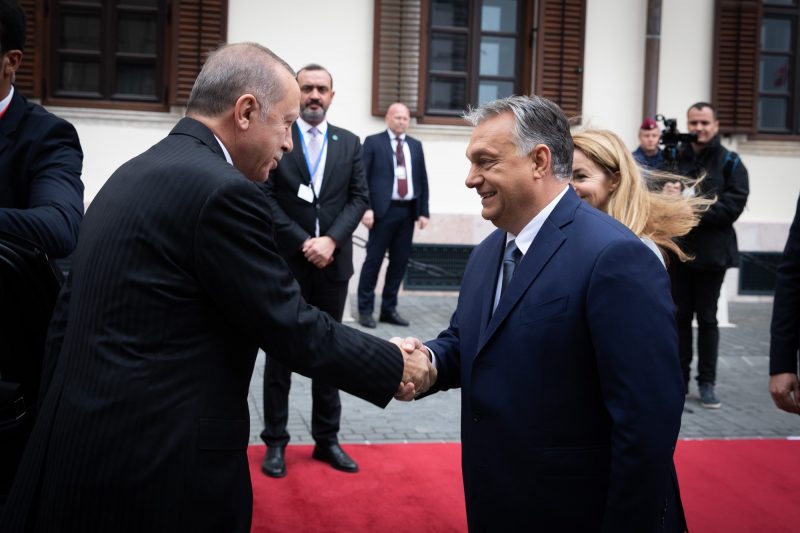
Photo – Press-service of Hungarian Prime Minister
The migration issue
The parties agreed that without Turkey’s help, migration to Europe cannot be restricted.
“Turkey is a strategic partner for Hungary in terms of both migration and security,” Orbán said.
He pointed out that Turkey had intercepted 350,000 illegal immigrants in the past year alone. If Turkey hadn’t done so, they would have been in Europe, near the southern border of Hungary, the Hungarian leader stressed.
In support of these words, Erdoğan said at a press conference that there are currently almost four million refugees in Turkey, many of whom will go to Europe if they are not contained.
“Due to cooperation, we have held this crowd back with patience,” he said.
He recalled that a security zone was needed to allow migrants to be sent home. Erdoğan said he agreed with the UN Secretary-General that a donor conference would be organized to implement Turkey’s plans.
Security
Hungary supports Turkey in the fight against terrorism. The two countries are allies and strategic partners in NATO, the leaders also noted during the talks. The only way to fight international terrorists is for NATO allies to refuse to negotiate with them, they stressed.
Turkey is taking decisive action against the militants of the Islamic State, and its commitment to these efforts will be maintained, Erdoğan promised.
For his part, Orbán stressed that Turkey’s military invasion of northern Syria should be considered in the light of Hungary’s national interests
“This is not a conflict that’s distant from and irrelevant to Hungary where we can choose sides based on sympathy,”
Orbán recommended that the EU provide Turkey with financial assistance so that it can build cities in Syria to send migrants and refugees there. Otherwise, Orbán added, these people will find themselves in Europe.
Orbán noted that he and President Erdoğan had discussed projects to restore the security zone in north-eastern Syria and that Hungary has agreed to support these projects as much as possible. The plan stipulates that cities, villages, churches, schools and hospitals in the area will be rebuilt. Although Hungary is a small and poor country, it will participate, Orbán promised.
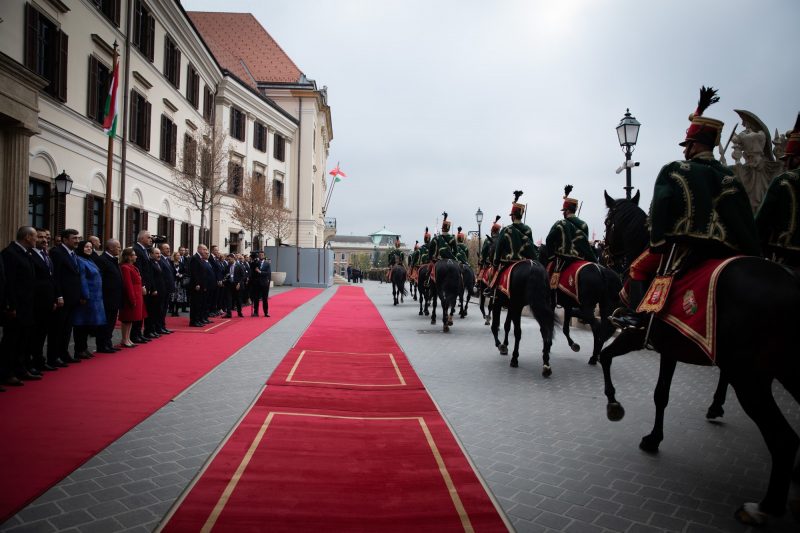
Photo – Press-service of Hungarian Prime Minister
Economy
Both Erdoğan and Orbán are known as highly pragmatic politicians. In particular, they both take a rational approach in regard to energy policies.
While a number of leftist and liberal voices in Europe are trying to make the procedure of energy cooperation with “totalitarian countries” as complicated as possible (referring to Turkey, Russia and Iran), these pragmatists are concluding mutually profitable agreements. Thus, Orbán stressed that Turkey has already contributed to the construction of a new gas pipeline, through which supplies from Central Asia to Central Europe will be carried out.
“If Hungary wants to achieve energy sovereignty, then we need strong cooperation with Turkey,” Orbán said.
Hungary and Turkey seek to increase bilateral trade from the current $3.2 billion to $6 billion. In 2013, an agreement was signed with President Erdoğan regarding the establishment of a bilateral High Strategic Council and the holding of annual meetings. The press conference was followed by a high-level business forum with the participation of 15 businessmen from both sides. At the same time, Eximbank Hungary’s foreign trade bank, secured a $200 million loan for the development of joint Turkish-Hungarian enterprises.
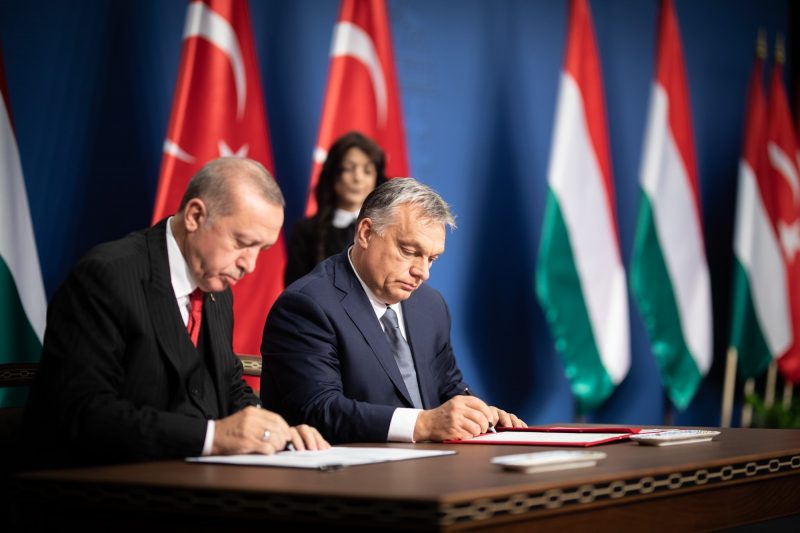
Photo – Press-service of Hungarian Prime Minister
European Union
The topic of enlarging the EU was also raised during the negotiations. Erdoğan insisted that the amount of financial support the EU promised for refugee care had not been delivered. However, he also expressed his gratitude to Hungary for supporting Turkey’s accession to the EU. According to him, the EU has been disdainful and antagonistic towards Turkey recently, and that Turkey’s membership in the EU could be of great benefit for all parties. In any case, Turkey maintains good relations with the Visegrad Group and plans to continue to strengthen them. Regarding refugees, Erdoğan answered that Turkey will continue to house and care for refugees, but if and when the country is unable to continue coping with everything, the “gates will be opened”.
Culture
Erdoğan thanked the Hungarian government for being supportive of the Maarif Foundation school in Budapest. Recently, the Budapest Metropolitan Government Office gave permission for the opening of the school and has enjoyed the cooperation of the Hungarian government.
Erdoğan expressed his utmost appreciation for the increased efforts to recognize the shared Turko-Hungarian historical and cultural past. In particular, he expressed satisfaction that the tomb of Gul Baba, a 16th century Dervish and poet was opened last year after reconstruction.
Erdogan noted that Hungary has the status of observer in the Turkic Council and recently opened an office for the organization in Budapest, which, he said, contributed to the development of relations with Central Asia.
Protests
On the other hand, Erdoğan’s visit was accompanied by opposition protests. A person unfamiliar with the domestic political situation in Hungary might think that it was anti-Turkish sentiment inherent in the Hungarians for historical reasons. In fact, however, it was largely political activists who protested, primarily accusing Erdoğan of “despotism” and “repression against the Kurds”. The activists then held a series of demonstrations with posters of dead Kurdish politicians and slogans like “Child murderer Erdoğan!” Protesters used Kurdish flags and anti-Erdoğan chants. The demonstration, organized by the left, was accompanied by statements like “We are here to protect the Kurds”.
Anti-Erdoğan posters were distributed mainly by the left-liberal party Momentum, as well as by TizenX. The Democratic Coalition printed photos of “Syrian victims who died as a result of the President’s policies”. Democratic Coalition Spokesman Balázs Barkóczi commented on the protest, saying that they “find it shameful that Hungary has become the gateway for half-Asian dictators, and we are ashamed that a war criminal will be free to walk around Budapest in 2019.”
“At the same time, although Orbán’s main goal is to protect Christianity, it does not protect Kurdish Christians living there, but supports the war against them,” said the left-liberals. The opposition primarily focused on accusing Orbán of approving of “war crimes” by supporting ties with Erdoğan and Turkey. Deputy group leader Antal Csárdi (LMP) even stated that this makes Hungary “an accomplice to ethnic cleansing and genocide”.
Why is there such harsh criticism of Turkey? Why doesn’t the opposition behave with the same frenzy against American or Western European leaders who are putting serious pressure on Hungary and trying to crush its sovereignty? Because these protests are, in reality, against Orbán. The opposition doesn’t think strategically and for the future, just about what they can use to get rid of Orbán and gain power for themselves.
Further demonstrating this, after Erdoğan’s arrival caused roadblocks and large traffic jams in Budapest, the mayor, Karácsony Gergely, from the green Dialogue for Hungary party, decided to take advantage of the situation. Instead of trying to cope with the traffic problems in his city, he began to criticize Orbán.
He wrote on Facebook:
“I also protest against an oppressive dictator’s visit to Budapest, as a mayor. It is no coincidence that a few days after my election, the Kurdish flag was put out in my study window, because I felt obliged to stand up for the Kurds as a mayor supporting peace.”
There is no diplomatic purpose that would legitimize a country’s prime minister to welcome and entertain war criminals, he added.
In response to these attacks, Orbán noted that the Hungarian opposition, which criticizes Turkey, stubbornly does not want to understand a simple fact – without the help of Turkey, the migration wave will take over Europe. Any attempt to remove Erdoğan from power will be in the interest of “immigration forces”. Orbán reminded them that the influx of migrants to Europe was identified as one of the goals of the American financier and supporter of the color revolutions, George Soros.
As long as Erdogan is in office and Europe succeeds in striking a deal with him, he will “open the gates to Syria rather than Europe,” Orbán said. “Until then, we are safe.”
Hungary provides substantial financial and military assistance to Kurds living in Iraq, Orbán reminded the same protesters. Currently, there is a Hungarian embassy in the Iraqi Kurdistan region.
Thus, Erdogan and Orban act pragmatically, in the interests of their countries and in the long term. The opposition does not want to accept or understand this and tries to put sticks into the wheels of the Hungarian prime minister in all endeavors.
However, it is no secret that since 2010, when Orbán came to power, Hungary’s foreign policy has taken a clear position, trying not to interfere in conflicts on which it does not have a significant impact, but to strive for balanced relationship with all major powers, especially in the Ankara-Moscow-Berlin geopolitical triangle.







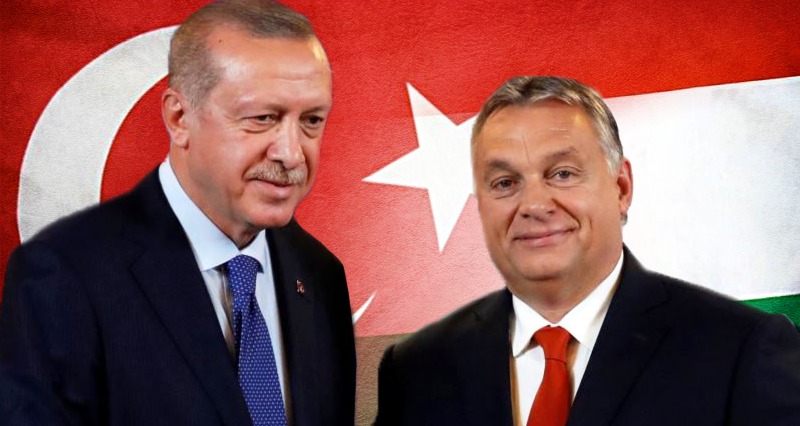

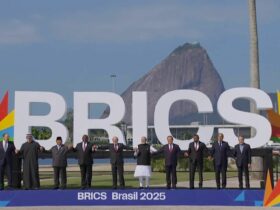


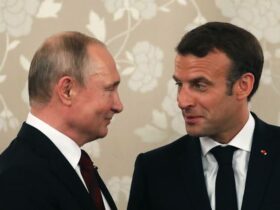




Leave a Reply